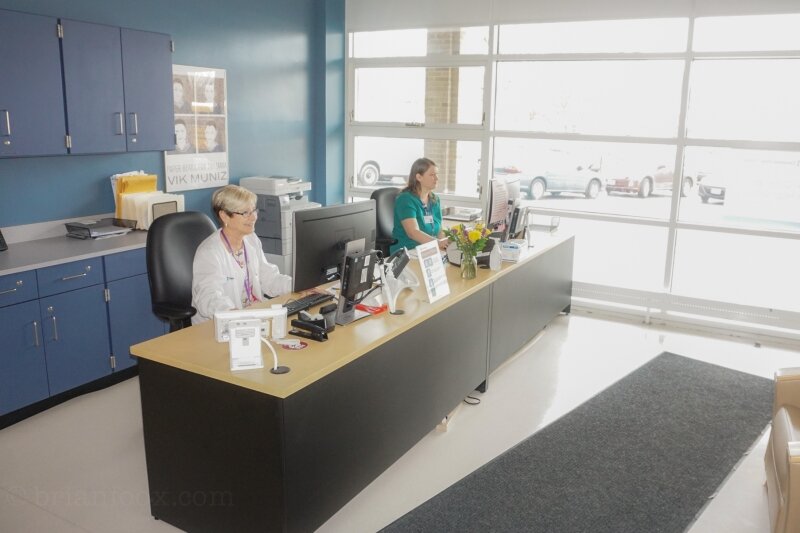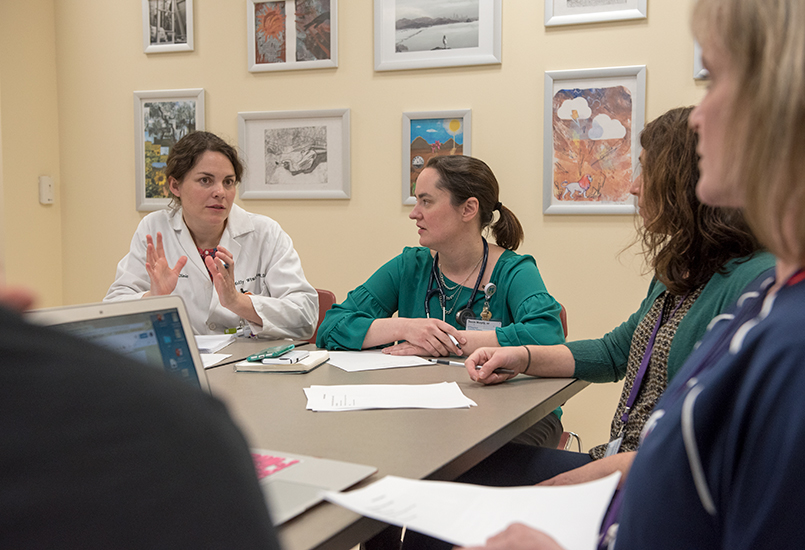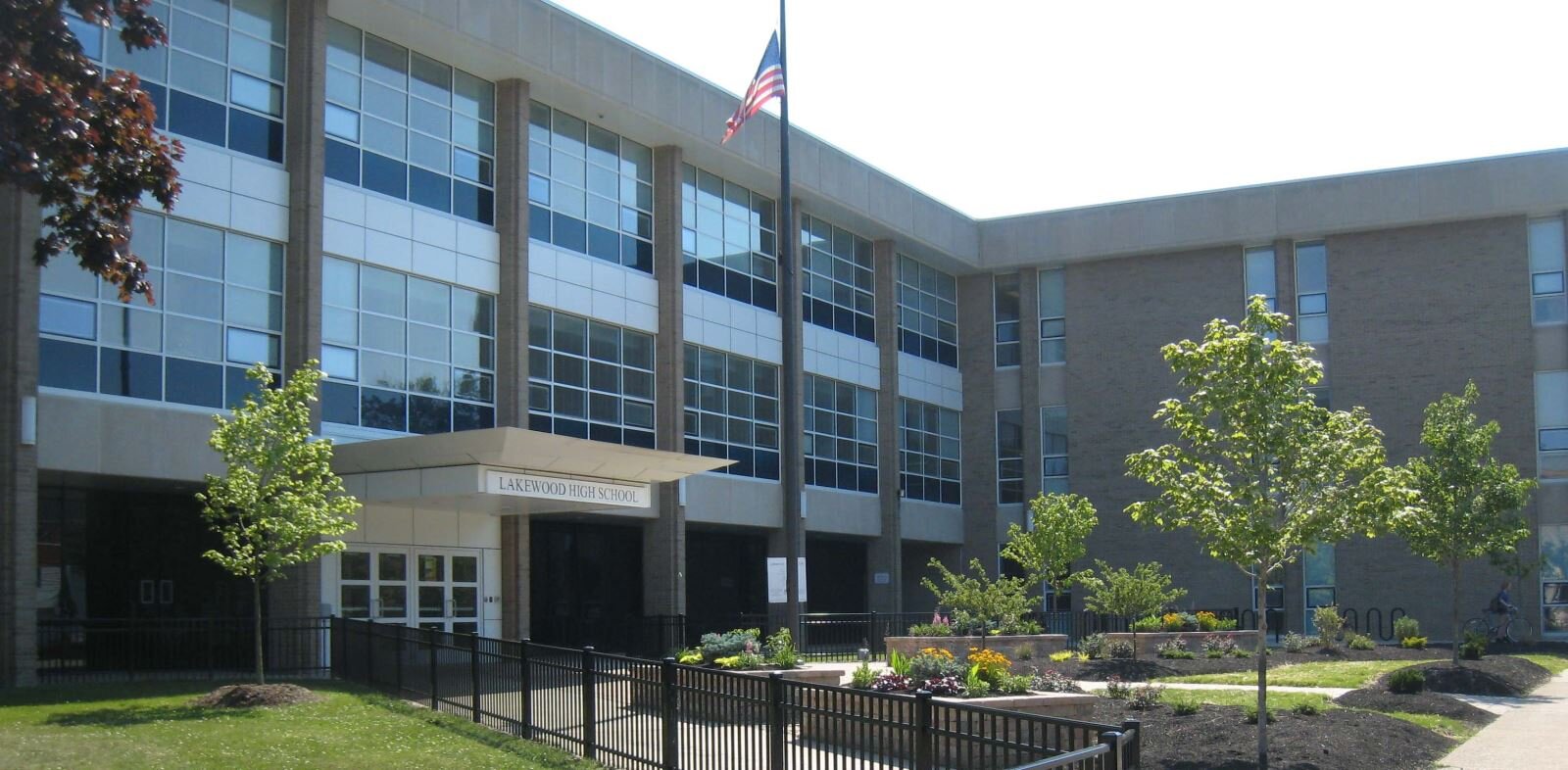Stories of Impact
Cleveland Clinic’s Medical Clinic at Lakewood High School
ONSITE MENTAL HEALTH NAVIGATOR DEDICATED TO HELPING STUDENTS, CAREGIVERS & STAFF ACROSS LAKEWOOD CITY SCHOOL DISTRICT
Meet Michael Carr (LSW, LPCC-S), Mental Health Navigator and part of the onsite team at the Cleveland Clinic’s Medical Clinic at Lakewood High School. Funded through a grant awarded from the Three Arches Foundation, this newly created role is dedicated to filling a growing and critical need by helping K-12 students across the district obtain access to mental health care, including mental health assessment, care coordination and caregiver support. With the onset of mental illness frequently occurring during childhood and adolescence, and considering the number of hours students spend within the school environment each day, Carr’s presence provides an on-the-spot resource for those who seek counseling and care services.
For academic success, children need to feel well physically and mentally. Recognizing this key link between learning and health, the Lakewood Board of Education and Cleveland Clinic Children’s partnered in 2018 to launch the in-school medical clinic serving elementary, middle and high school students during the school day. With the goal of keeping students healthy, the Medical Clinic provides a convenient option for those who infrequently visit or do not have a primary care doctor, as well as those who simply opt to use the facility for routine care and services. Currently, 21% of the student base is enrolled with guardian consent for treatment during the 2019-20 school years.
Students often face a myriad of undiagnosed mental health issues such as stress and anxiety, depression, drug and alcohol abuse, eating disorders, sleep deprivation, disruptive situations at home, and lack of nutrition. The availability of school counseling and mental health services that are equipped to support students who suffer from these issues is a critical and growing need. According to a recent report from the U.S. Department of Education, 37% of kids with mental illnesses do not graduate from high school.
There is no ordinary day for Carr who was hired in April and holds the highest level of counseling license available in the state of Ohio. The Mental Health Navigator position was designed to provide a continuous resource for students, caregivers and staff serving in a multitude of capacities. From managing patient referrals and post-treatment transitions back to school, to diagnostic interviews and assessments, to crisis counseling, care coordination and group counseling, Carr is consistently focused on being a trusted source that helps students and their caregivers “navigate” and understand the continuum of options and resources available both onsite and offsite.
Throughout his extensive career in social services and community mental health, Carr has engaged with a wide range of patients and constantly builds on his learnings to calibrate his approach. “Whenever I meet with a student or caregiver we focus on assessing their need, trying to figure out a strategy to address that need, implementing a plan, and then readdressing that need again,” said Carr. “At the end of the day it’s about collaborating together to come up with ways that work best for their situation, respecting they know what is realistic for them.” Recently, Carr assisted a distraught student who had just turned eighteen years old and was removed from the family’s insurance plan by her parents. Working together, the student completed the application process for Ohio Medicaid enabling her to engage in needed healthcare services.
“We know students face many day-to-day struggles that can affect mood, thinking and behavior,” stated Carr. “For a parent/caregiver experiencing these issues, there is frequently a need for guidance to help foster an environment where they can be part of the solution, and ultimately help their child follow through.” Carr recently offered support to a caregiver who was struggling with her approach to a child’s worsening social and school situation. The caregiver is now learning to recognize how she is triggered by the child’s actions and applying different methods to rethink her role and improve dialogue.
Meeting the full continuum of student and caregiver needs is also dependent on meaningful outreach and relationship-building that bridges resources between Lakewood schools, community mental health providers and outside services such as Bellefaire JCB and OhioGuidestone. Carr’s insight from both the counseling and developmental perspective is helping to further joint efforts that expand these multidisciplinary teams. “We can’t randomly give a referral in good faith without an established relationship.” stated Carr. According to Dr. Molly Wimbiscus, Director, School Mental Health Program at the Medical Clinic, “Bringing these resources together ensures consistent care for students and builds confidence for school personnel dealing with metal health crises.”
The most important part of Carr’s day is being present when a student needs help and guiding them towards resources tailored to their needs. Through his role, the Medical Clinic is working with the district to identify additional access to care support to further expand what is already in place. Group therapy sessions focused on stress management, mood disorders, diabetes & mental health, eating well, and caregiver support are already underway. Also in the process of being formed is a new Student Advisory Council comprised of current patients, past patients, and other Lakewood students that can provide valuable insight and constructive feedback for continuous improvement. In tandem with these efforts, Carr is getting to know the district staff, helping to develop a wider understanding of trauma-informed care, and serving as an additional resource should behavioral health issues arise during the school day.
Carr offered, “These steps are underway because of interactions with students, caregivers and staff ─ we’re getting a clearer picture of the mental health needs impacting Lakewood youth and beginning to address where we see gaps in care. As efforts continue to evolve, it’s our hope that not only does this directly benefit our community, but aid neighboring school districts with a model and shared learning.”
To learn more about the Cleveland Clinic’s Medical Clinic at Lakewood High School visit clevelandclinicchildrens.org/school
Photos courtesy of Cleveland Clinic Foundation and Brian Foox
Published November 2019






